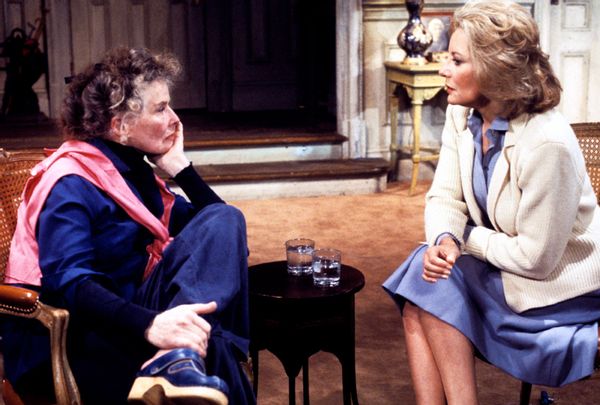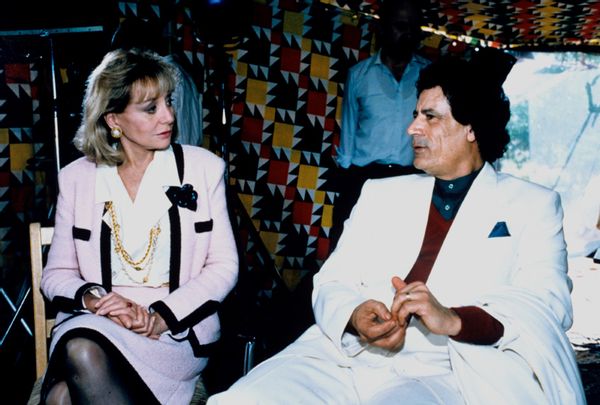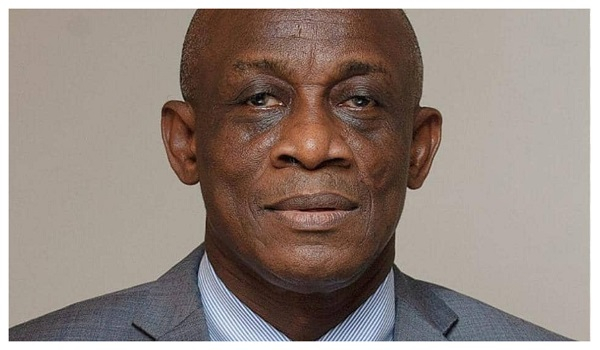Barbara Walters is arguably as fascinating as the politicians, dictators and celebrities she interviewed over her long and storied career. Hired in 1961 to write “women’s features” for NBC’s “Today Show,” she was eager to expand beyond the “soft, fluffy” stories and to be taken seriously as a journalist. In 1974, she became the first woman co-host on "The Today Show," before taking a $1 million salary to move to ABC to co-anchor “The Evening News with Harry Reasoner.”
At ABC, Walters faced alienation and sexism, but she also scooped her rivals (Walter Cronkite among them) by securing major interviews, such as one with Menachem Begin and Anwar Sadat. It was also at ABC where Walters became the go-to for special interview programs where she talked candidly with newsmakers — from former presidents to famous celebrities. Her approach, which often involved probing questions, intended to humanize her subjects, including Monica Lewinsky to Moammar Gadhafi. In her third act, she co-hosted and produced the wildly successful talk show, “The View.”
"I wanted the film to be real and true, and there are some not necessarily flattering things, but they are revealing of who she was."
The illuminating documentary, “Barbara Walters Tell Me Everything,” recounts the TV journalist’s remarkable career, which paved the way for so many women journalists, including mentees Oprah Winfrey and Katie Couric, who are interviewed for the film, which additionally touches upon Walters' rivalry with Diane Sawyer.
Director Jackie Jesko also delves into Walter’s personal life — her complicated relationship with her parents as well as the daughter she adopted, her failed marriages and her awkward relationships with Senator Edward Brook and Roy Cohn.
Jesko emphasizes the difficulties Walters faced feeling as an outsider in a male-dominated environment, her personal and professional ambitions and setbacks, as well as her triumphs. But the film also shows how TV journalism changed and grew over the decades. There will never be another Barbara Walters; she was a role model to so many.
Jesko spoke with Salon about making “Barbara Walters: Tell Me Everything” at the Tribeca Film Festival.
The following interview has been lightly edited for length and clarity.
My cultural memory of Barbara Walters was her on “The View” as a much older woman. I remember the Monica Lewinsky interviews — everyone remembers those — but it was her on “The View” as the “Grande Dame” of the show. I honestly didn’t know all that much about her life outside of her appearances on “The View.” I obviously knew about her career, but not her life.
For me, it was the Fidel Castro interview she did in 1976. I wish we were able to use it all. There were hours and hours of raw footage. The two of them went back and forth for an entire day, 24 hours of filming, and she was able to wrap him around her finger in a lot of ways and push him out of his comfort zone. It was amazing to watch.

It was important to me not to make a hagiography. I don’t find those kinds of films interesting. Everybody knows she was a complicated woman. It was hard in the beginning to look at her career and decide what stories to go with. Her own autobiography, “Audition,” became my guide, and the things she talked about in that were important and became the map. It’s a great book. She really went for it. I wish she had done an audiobook. It would have made our lives a lot easier. [Laughs]
It was hard to make decisions, because you don’t want to tell the same story over and over again. You have to decide what each of these interviews you delve into represents or shows. Castro and Gadhafi are very similar, so we only went with one of them. To answer your question, I should find out how many terabytes of footage it was, but it was extremely intimidating to walk into the archives. ABC opened up a vault that I don’t think they had opened up before, that was just kind of everything Barbara had ever done for ABC, and that was the vast majority of her career. It was hard to decide what to focus on, but I started out as a news producer — my first job was at ABC — and I knew we’d find the most hidden footage, off-the-cuff stuff in shoots where she had to travel somewhere physically, rather than in-studio, because you shoot more on a trip. We started with Egyptian President Anwar Sadat and Israeli Prime Minister Menachem Begin, to see what we could find in the cutting room floor footage. We found some great stuff, but also in the regular sitting interviews.
Barbara had so many seasons to her life and so many things she was interested in, so we wanted to make sure there wasn’t too much overlap in the talking heads interviews as well. I knew she had a special relationship with Oprah — they had a true relationship; it was not that she was talking about Barbara because she was famous. They knew each other. I knew Cynthia McFadden from my time at "Nightline," and she was an incredible interview. We wanted to pull from both sides of the camera. Bette and Monica were people who sat across from Barbara. Joy was part of “The View,” and I think that was Barbara’s proudest chapter.

"She certainly understood where the eyeballs were going, and she wanted to be watched."
I wanted the film to be real and true, and there are some not necessarily flattering things, but they are revealing of who she was. That is the point of the film. I hope people walk away understanding what kind of person she was, what drove her. Everybody knows her work. It was not like we were going to blow anyone’s mind with that. It was public work. Everyone has seen it. People know some things about her life, depending on how much of a fan they are. [Laughs] But I felt that we had to do everything, which includes her controversial friendships, the whole thing with Diane Sawyer, and how she changed what was defined as news. And that has been subject to a lot of criticism. Was it fair? Some of it I am neutral on. But she certainly understood where the eyeballs were going, and she wanted to be watched.
I think that she led an incredibly big life, and maybe these different partnerships were good for her when they were good, but I don’t think she needed that to be happy. I understand that.
What do you think of how the playing field for women journalists has changed?
Women are now dominating television news. I don’t think there is a position they haven’t held. They have been presidents of networks, worked in front of the cameras and behind the cameras. In terms of a gender equality industry, they have pretty much arrived.
Why can there not be a Barbara Walters today?
"I think the reason there can’t be another Barbara Walters is because there is no way to get an audience of 70 million people to watch anything."
The industry itself has been in decline. I think the reason there can’t be another Barbara Walters is because there is no way to get an audience of 70 million people to watch anything. I think some of the podcasters might be taking over that space a bit, but the idea that you can capture an entire country is just gone. Social media has changed everything, and the way we get information is so different now. I think there are pros and cons to that. It is not a value judgment, but it would be impossible for a television journalist to get the audiences that Barbara got, and therefore, they could never be as powerful in shaping public opinion as she was.
Walters was famous for asking tough questions. What would you have asked Barbara Walters if you could have spoken to her for this film?
That’s a good question, and not one I’ve given a lot of thought to. I actually would like to know if there is a love of her life. I don’t know that there was.
“Barbara Walters: Tell Me Everything” had its world premiere at the Tribeca Festival on June 12, before launching June 23 on Hulu.










